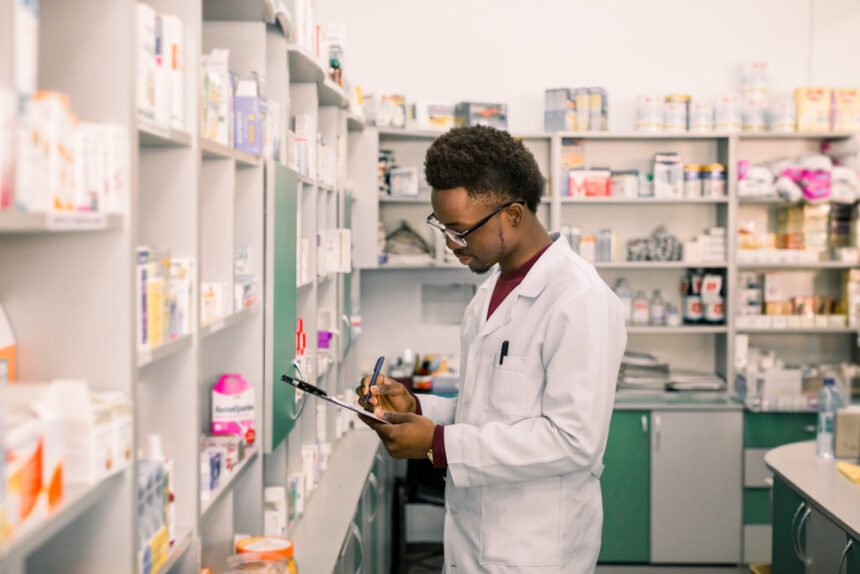Like most industries, the healthcare landscape has seen transformation and growth throughout the years. Many professionals, including pharmacy technicians, have experienced changes that seek to keep up with the demands of an aging population. Currently, pharmacy techs are being called upon to directly work with patients and have taken on more work as a result.
In this blog post, we will explore the various duties of a pharmacy technician as well as the qualifications for being one.
What is a Pharmacy Technician?
A pharmacy technician works closely with pharmacists to ensure the health and safety of their patients. Technicians are responsible for locating, distributing, packing, and labeling prescribed medications for patients before a pharmacist reviews and packages it for purchase.
Pharmacy technicians may also help with administrative tasks, such as tracking inventory, processing insurance claims, filing paperwork, and discussing medications with patients.
What Tasks Do Pharmacy Technicians Perform?
Included in the job description for a pharmacy technician are their performative duties. Pharmacy technicians work with pharmacists, nurses, and doctors, performing a wide range of tasks within a pharmacy. The day-to-day duties of a pharmacy technician include:
- Preparing new prescriptions
- Refilling prescription requests
- Delivering medication to patients
- Labeling prescribed medication
- Packaging medication in bottles
- Processing insurance claims
- Tracking inventory
- Filling dispensing machines
- Repackaging medications in bulk
Although pharmacy technicians primarily work in pharmacies, they can choose to work in the government, community, academia, pediatrics, critical care, oncology, and more. You’ll find pharmacy techs working in hospitals, retail stores, assisted living facilities, and nursing homes.
How Has the Pharmacy Technicians Changed?
Modern pharmacy technicians still play a major role in locating, packing, and labeling medications, but they’re also responsible for other tasks since the pandemic, including:
- Emergency Care Assistance: Employers are expecting pharmacy technicians to become CPR certified so they’re able to assist others during an emergency.
- Medication Distribution: Pharmacists are becoming busier and require help from two pharmacy technicians who can each check if prescriptions were filled correctly.
- Improving Pharmacy Performance: Pharmacists and managers now look to the technicians for suggestions on how to improve pharmacy efficiency and customer care.
- Quality Control: Technicians play a major role in ensuring quality patient care. Without them, pharmacists would take significantly longer to check and administer medications.
Technology is improving several health care fields and has led to several unique pharmacy technician roles. For example, here are 5 tasks unique to technicians in a hospital setting.
- Investigation Drug Service: Hospital pharmacy technicians assist in all aspects of clinical trial management. They work closely with sponsors, investigators, drug suppliers, and study teams to help ensure outsiders adhere to trial guidelines.
- Medication History Tech: With the use of documentation software, pharmacy technicians review the medication histories of patients to update their profiles.
- Sterilizing and Preparing Compounds: Pharmacy technicians ensure that on-site non-sterile compounds are sterilized, free from contamination or calculated.
- Pharmacy Purchasing and Procurement: Hospital technicians work with pharmaceutical companies and drug wholesalers to procure medication.
- Medication Delivery: Pharmacy techs are using technology to help patients administer medication at home by delivering them, administering them, or providing advice.
In many ways, community pharmacies and hospital pharmacies are two different worlds. While a hospital pharmacy tech must use community and hospital pharmacy knowledge to get by, community techs require less training. Techs who work in a community pharmacy only need to have local knowledge, although it would be beneficial for them to train in a hospital setting.
Although the role of pharmacy technicians has grown and changed over time, it’s still a worthwhile career in the healthcare industry. The demand for pharmacy technicians grows every single year, and a career in this industry is stable, high paying, and needed in every community.

